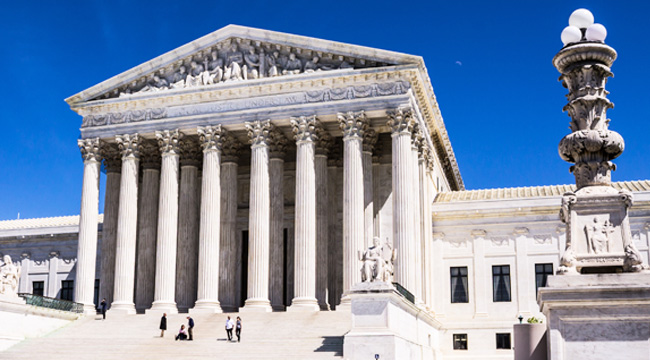
On Monday, the Supreme Court punted on a landmark transgender rights case — an act that could have serious fallout in light of the Trump White House’s reversal on transgender bathroom rights. SCOTUS also issued another headline-making ruling on a very different subject, which has to do with the almost sacred tradition of secret jury deliberations. With Pena Rodriguez v. Colorado, the court has ruled (5-3) that this principle can be tossed out the door in instances of racial bias that threaten a defendant’s right to a fair trial.
The ruling follows the court’s recent decision on Texas death row inmate Duane Buck, who was given a new sentencing hearing after an expert witness was found to have tainted jury instructions with racially discriminatory testimony. The current case involves a Colorado resident, Miguel Angel Pena Rodriguez, who was convicted (in part) by jurors who made racially charged statements during deliberations:
In Monday’s case, defendant Miguel Angel Pena Rodriguez appealed to the Supreme Court after two jurors reported that a third juror tied Pena Rodriguez’s guilt to his Hispanic heritage. The juror’s statements reportedly saying Pena Rodriguez was guilty because he is “Mexican, and Mexican men take whatever they want” only came to light after he was convicted of inappropriately touching teenage girls.
Justice Anthony Kennedy wrote for the majority “that blatant racial prejudice is antithetical to the functioning of the jury system and must be confronted in egregious cases like this one despite the general bar of the no-impeachment rule.” The court’s four liberal justices joined with Kennedy to form a majority.
Importantly in this case, the Supreme Court did not order a new trial. Instead, they ruled that a jury’s deliberations can be examined in cases that are as “extraordinary” as this one. In this way, SCOTUS differentiated from the norm for special cases while also protecting the erosion of jury secrecy. That principle is based upon the notion that jurors feel freer to reach a verdict without interference, scrutiny, or pressure regarding their deliberations.
All states and the feds currently protect jury deliberations from such outside influences, and the Supreme Court is now simply falling in line with some states that allow for rare exceptions.
(Via New York Times & SCOTUS Blog)
